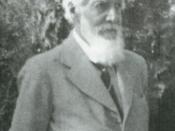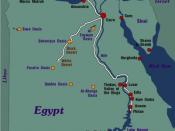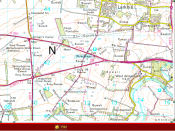Emily Wright
Mr Carnovale
11AH6
William Matthew Flinders Petrie
William Matthew Flinders Petrie
Biography:
Professor William Matthew Flinders Petrie was a British archaeologist and Egyptologist. He was born in Charlton, Kent on the 3rd of June, 1853. His grandfather was a famous surveyor of Australia's coastline, captain Matthew flinders.
Flinders began as a practical surveyor and studied the Stonehenge in his spare time. At 19 he discovered the unit of measurement used and published a book called 'Stonehenge: plans, description, and theories''.
In 1880 he started studying Egypt and the Middle East including the great pyramid of Giza, where he showed how meticulous he worked.
Flinders found fragments of the statue of Ramses II in 1884 during his excavation of the temple of tansies.
During the next 2 years he developed a sequential dating method which determines the chronology of any civilization by pottery fragment comparison known as seriation dating.
He was awarded the title 'the father of modern archaeology' for his work.
Over the next forty years he excavated over 30 sites including his most famous find a Stele of Merneptah at Thebes containing the earliest known Egyptian references to Israel
In 1892 he was made professor of Egyptology at university college, London. He founded the Egyptians Research Account, in 1894.
He wrote over 100 books and nearly 900 articles and reviews.
1972 he retuned to Palestine where he worked until his death at 89. He passed away July 28 1942.
Timeline:
1853 - 23rd of June, born in Charlton, Kent
1880 - Discovered the unit of measurement used for the construction of Stonehenge
- published his first book Stonehenge: Plans, Description, and Theories.
1880 - Started studying and excavating the great Pyramid of Giza.
1884 - Discovered fragments of Ramses II
1886 - Developed...


